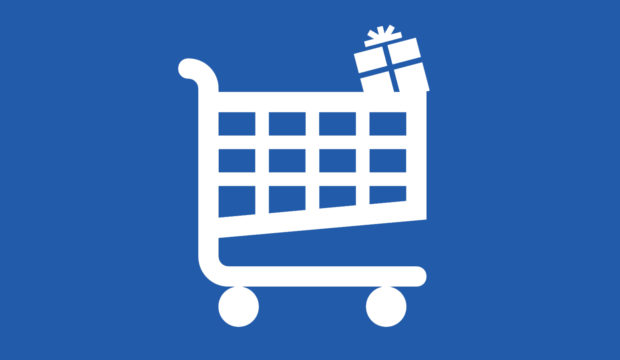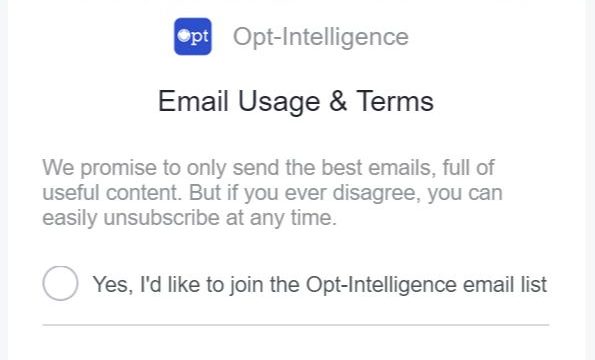Get your holiday marketing plan ready for the 2021 shopping season with these three tips.

Get your holiday marketing plan ready for the 2021 shopping season with these three tips.

Learn how to use increased online shopping activity to your advantage through co-registration this holiday season.

The new year brings the perfect time to take a new approach to lead generation. Whether you’ve been generating a high volume of leads but lacking quality, haven’t managed to scale your lead generation efforts, or simply haven’t been pursuing lead generation at all, now is the time. Here are a few things to keep in mind as you evolve your lead generation strategy and resolve to generate more leads with more efficiency and better tracking than ever before.
2018 brought GDPR, the European Union’s General Data Protection Regulation. 2019 heralded CCPA, the United States’ own California Consumer Privacy Act. 2020 brings enforcement of CCPA, and the promise of more data privacy rules and regulations. While the specifics of each may vary, the general principle of giving consumers control over their data remains. And it necessitates maintaining tracked consent and diligent data practices. Double opt-in can help you ensure your have verifiable proof of consent for your email list, and is a great first step towards developing your own data privacy guidelines.
Retargeting ads can be highly successful, and it’s been shown that resubscribed email users have higher conversions rates at a faster pace than new subscribers. So what if you could retarget unsubscribed email addresses? This year, resolve to retarget the right way with a winback campaign that matches unsubscribed email addresses and displays opt-in ads to make it quick and easy to resubscribe, no inbox required.
A data compliant list full of newly resubscribed users is a great start to a new year, but you also need to fill your pipeline with new leads. Opt-in advertising allows you to target users on the websites they already frequent, and co-registration means they can join your list in just a few clicks. There is no landing page, and no wasted clicks. Just new leads ready to turn into customers.
Want to get started? We can help! Get a free evaluation today.

Double opt-in is a simple way to take opt-in advertising by validating email addresses to maintain a qualified email database full of actionable leads.

The basic premise of lead generation hasn’t changed, but technology and targeting sure has. Today’s lead generation tactics are sophisticated and frictionless, offering a seamless sign-up without landing pages. How? Through highly efficient opt-in advertising. Here are a few must-reads if you are looking to generate leads without landing pages or want to grow your email list more quickly and efficiently.
Let’s start with the basics: what is opt-in advertising, and why should you use it? The term “opt-in” comes up a lot in online marketing. Single opt-in and double opt-in are two different methods of consent, most often used in relation to email. But when we talk about opt-in advertising, we’re talking about users who are opting in to your email list through an ad shown on a third-party site, typically through a co-registration form where their information has already been pre-populated for an easy opt-in. The best part? It doesn’t require a landing page, and can be used to retarget unsubscribers, all while maintaining data privacy compliance.
Most marketers understand that Instagram engagement is important. But what about email engagement? Low open and click-through rates can hurt not just your email campaign, but your whole email marketing list. Many email service providers look at email engagement to determine the quality of your email list. And a list with few opens or clicks across multiple campaigns can hurt your future email sends. Luckily, there are steps you can take to activate your email list and improve email engagement through opt-in advertising. It ensures you don’t oversend to your list, while still reaching your subscribers efficiently.
When it comes to lead generation, your website might not be helping you the way you think. A good website converts leads into customers, but even the best landing pages are wasted on lead generation. These potential leads don’t know you yet, so getting them to visit your site and read a lengthy landing page before submitting personal information is an expensive and highly ineffective endeavor. Utilizing opt-in advertising negates the need for landing pages and minimzes wasted traffic and costly clicks, while providing 100% trackable proof of consent.
A winback campaign is a great way to grow your list with highly qualified users. After all, they signed up once; what’s so different the second time around? But a simple resubscribe is not enough. You need to re-engage these former subscribers, and quickly. Because while it’s true they joined your list once, they also opted-out at one point as well. The key is to get them interacting with you as soon as possible in order to combat a decline in list quality. Opt-in advertising can help pinpoint these users and deliver relevant, compelling content to win them back.
Want to learn more? A free evaluation is just a click away.
Opt-in advertising isn’t exactly a new concept. In many industries it has become so standard that it’s not often mentioned, simply running along in the background, quietly supplying quality leads. Targeting and delivery capabilities have evolved with technology, but opt-in advertising has continued to be the standard in lead generation. And it’s a workhorse that delivers powerful results. But now more than ever it can and should be an integral part of your lead generation strategy. Here are three reasons opt-in advertising matters now more than ever.

GDPR has come into effect, and with it, far-reaching implications for email marketers around the world. While the General Data Protection Regulation may technically only apply to European Union citizens, most have adopted its principles on a global level to ensure full compliance. When it comes to email marketing, this means a sender must have proof of consent for every address they include in their distribution. Didn’t keep your original opt-in records, or maybe used some not-so-white-hat tactics a long time ago? Your email list could have just gotten a lot smaller. Here’s how to rebuild your email list with opt-in advertising.

Even if your business doesn’t attract a lot of European Union customers, you’ve likely heard a lot about GDPR by now. The General Data Protection Regulation refers to legal guidelines that govern how companies can and cannot use data gathered directly from customers and other sources, including Facebook Lead Ads. Meant to protect European Union citizens, it goes into effect this Friday, May 25, and can have major repercussions for businesses who have any interaction with EU citizens. Bottom line? It’s best to be compliant, even if the majority of your customers are in the United States.
When it comes to your email list, are you looking for quantity, or quality? Many marketers would say “both!” But what does quality mean when you’re using opt-in advertising? And is it different with single opt-in vs. double opt-in? While we’re strong proponents for double opt-in, we recognize that it doesn’t always make sense for every business. Single opt-in offers a lower cost way to generate leads that are a little less qualified, but still a great addition to your database.

In today’s increasingly connected world, privacy is a hot commodity. Personalization and customization have an alluring appeal to consumers, but tailored online experiences require a high level of personal information to work well. And with data breaches in the news almost daily, it can be hard for consumers to trust that the data they do share will be safeguarded. The good news for data-hungry marketers? Double opt-in advertising can help.